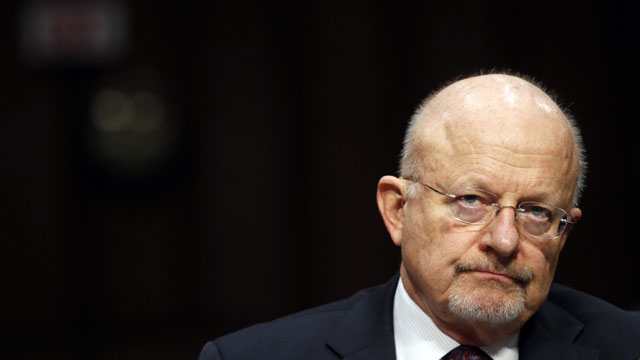
From Mark Mazzetti and Scott Shane, New York Times: The nation’s top intelligence official warned Congress on Tuesday that a cyberattack could cripple America’s infrastructure and economy and suggested that such attacks pose the most dangerous immediate threat to the United States , more pressing than an attack by global terrorist networks.
James R. Clapper Jr., the director of national intelligence, said in prepared testimony to the Senate Intelligence Committee that American spy agencies saw only a “remote chance” in the next two years of a major cyberattack — what he defined as an operation that “would result in long-term, wide-scale disruption of services, such as a regional power outage.”
Still, it was the first time that Mr. Clapper has listed cyberattacks first in his annual presentation to Congress about the various threats facing the United States, and the rare occasion since 2001 that intelligence officials have not listed international terrorism first in the catalog of dangers facing the United States. In 2009, the director of national intelligence, Dennis C. Blair, called the global financial crisis the “primary near-term security concern of the United States.”
In Mr. Clapper’s prepared testimony, he said, “In some cases, the world is applying digital technologies faster than our ability to understand the security implications and mitigate potential risks.”
In his State of the Union address, President Obama highlighted the dangers of cyberespionage, and American officials have recently escalated rhetoric aimed at China. On Monday, Tom Donilon, the national security adviser, called on China to agree to “acceptable norms of behavior in cyberspace. . . .”
Mr. Clapper also gave new emphasis to the danger posed by North Korea’s nuclear weapons and missile programs, which is said for the first time to “pose a serious threat to the United States” as well as to its East Asian neighbors. North Korea, which has recently made a series of belligerent statements after its third nuclear test, has displayed an intercontinental missile that can be moved by road and in December launched a satellite atop a Taepodong-2 launch vehicle, the report noted.
The intelligence agencies see evidence of North Korea’s “commitment to develop long-range missile technology” that could endanger the United States, Mr. Clapper said, but its willingness to use its weapons remains uncertain.
“Although we assess with low confidence that the North would only attempt to use nuclear weapons against U.S. forces or allies to preserve the Kim regime, we do not know what would constitute, from the North’s perspective, crossing that threshold,” Mr. Clapper said. (photo: Kevin Lamarque/Reuters)
Image: reuters%203%2012%2013%20James-Clapper.jpg
